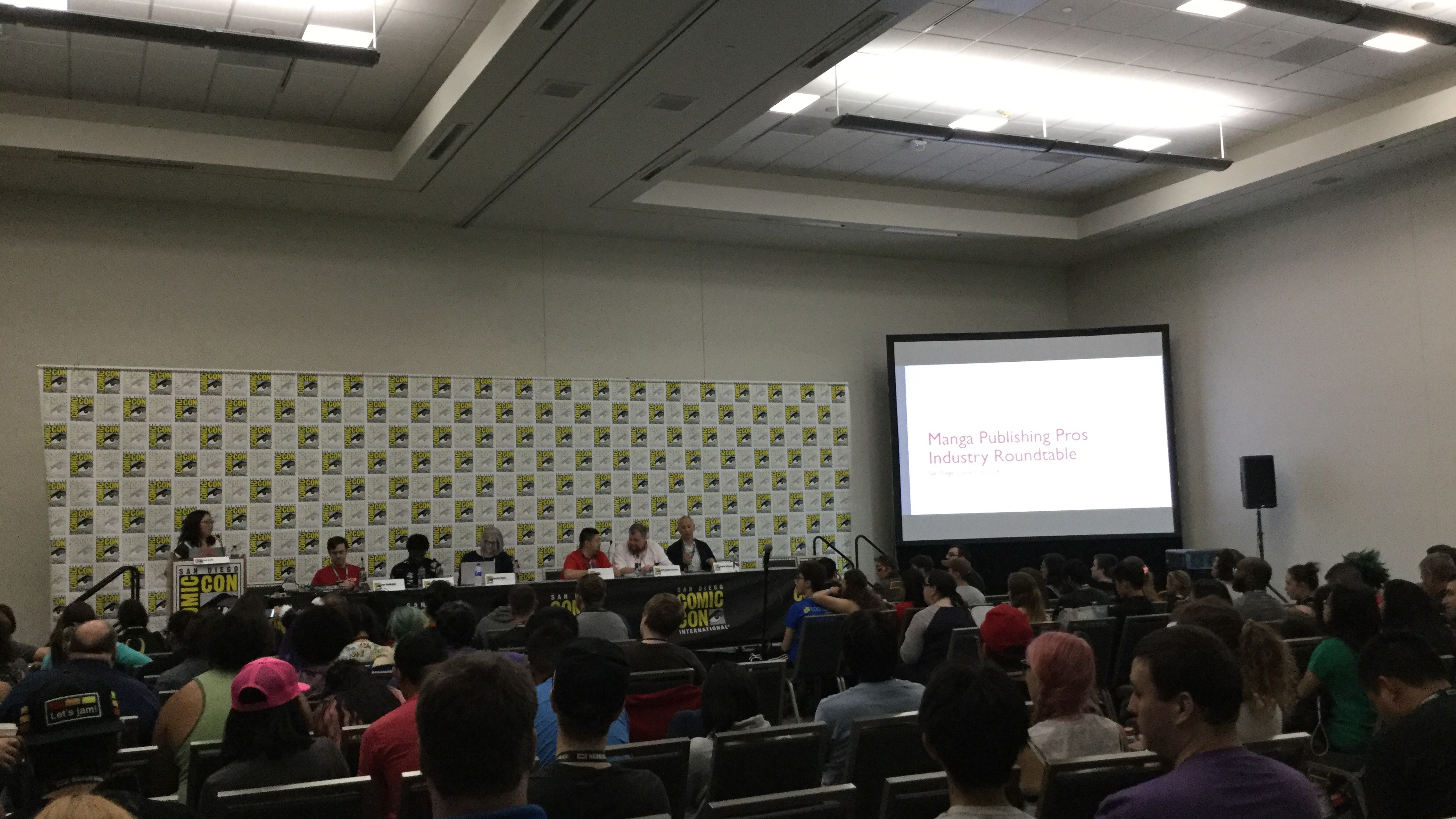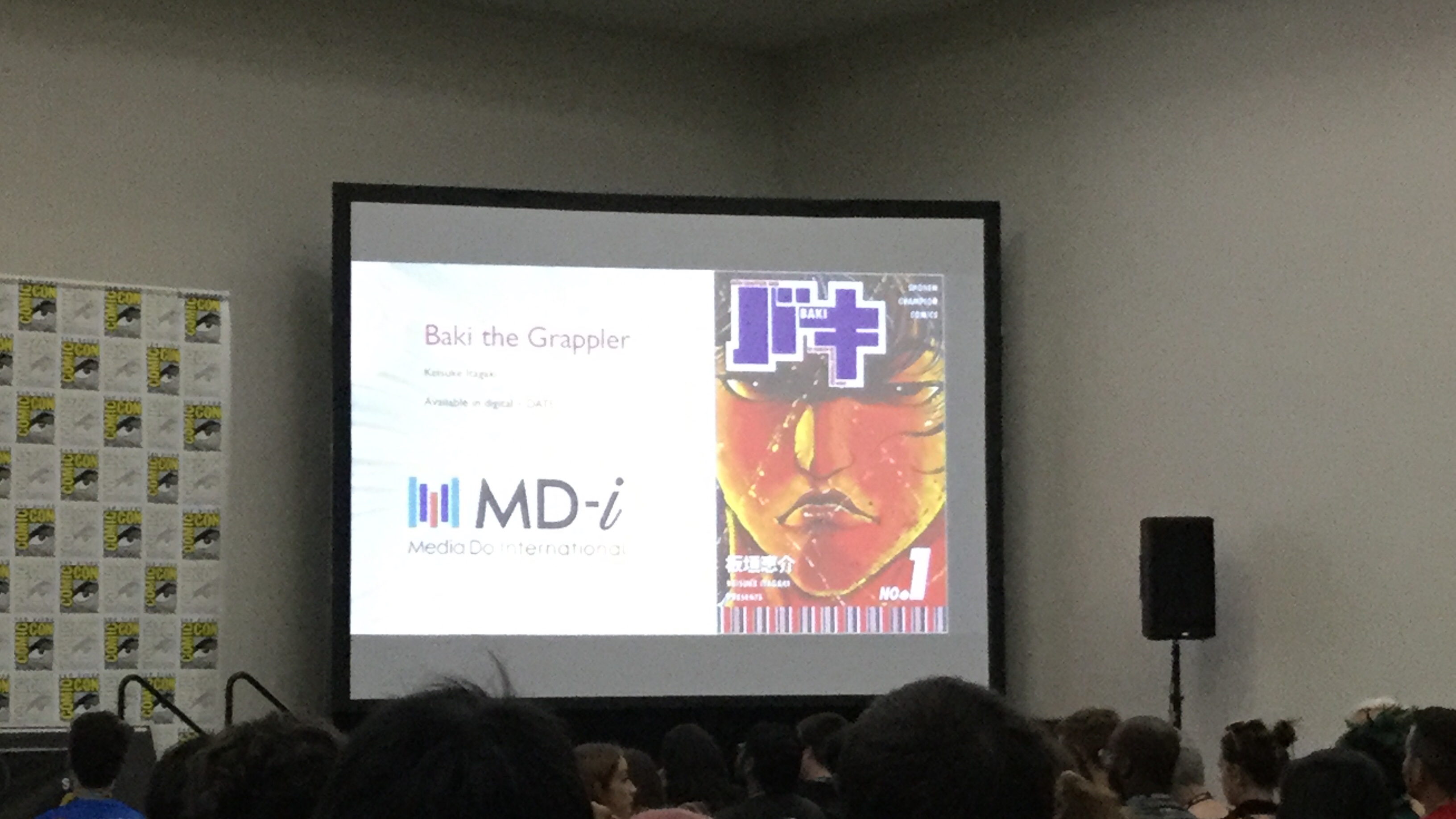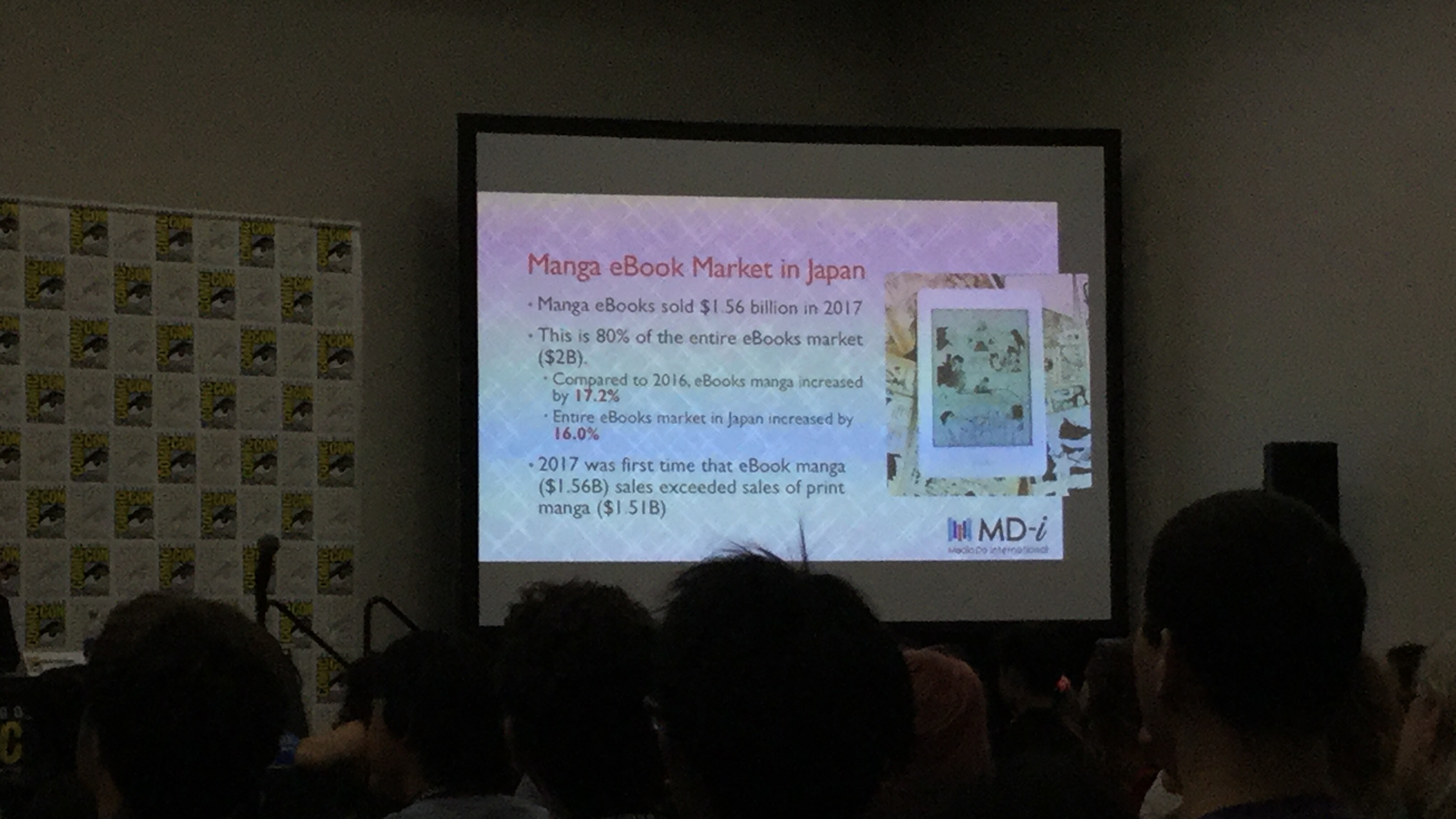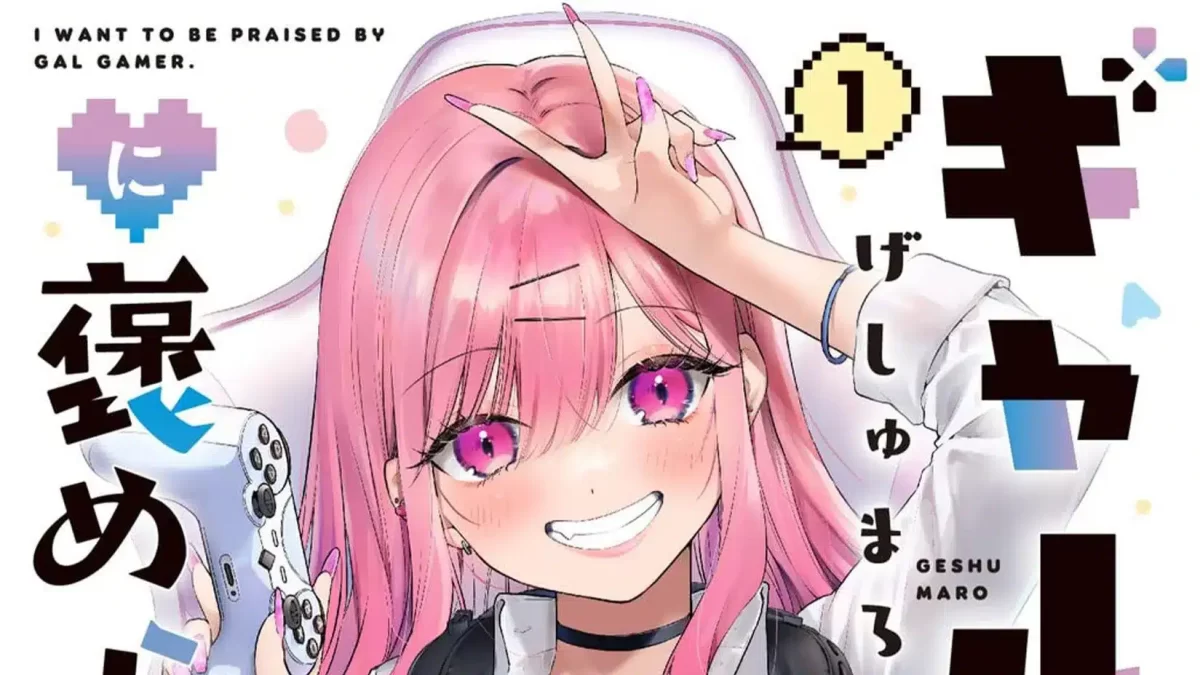By Nancy Powell
The major manga publishers announced the release of several new and belovedly familiar titles for their summer and fall catalogs, but Media Do’s Baki the Grappler stole the show. The original Baki was created by Keisuke Itagaki and serialized into 42 volumes by Weekly Shōnen Champion between 1991 and 1999. Media Do International’s Dahei Shiohama made the announcement during his turn at the roundtable to enthusiastic applause. Shiohama explained that this English translation would be the manga’s first appearance since the original ended in 1999. The English edition will be collected into thirty-one volumes, with an anticipated release date of August 2018.
Udon Entertainment’s Erik Ko announced the company’s licensing of Natsuya Semikawa’s Otherworldly Izakaya: Nobu, an educational manga that describes the experience of an old school German citizen trying Japanese food for the first time and offers basic food terminology in both Japanese and German. “It’s my dream come true…to bridge western culture with eastern culture” stated Ko.
Other titles announced included series expansions for Ghost in the Shell: Global Neural Network, Battle Angel Alita (in particular, a side story called “Ashen Victor” that pays homage to Frank Miller), and a premium collector’s edition of Sailor Moon by Ben Applegate of Kodansha Press; Dragon Ball: That Time I Got Reincarnated as Yamaha and Sleepy Princess and the Demon Castle by VIZ Media editor David Brothers; That Blue Sky Feeling, After Hours and
Sweet Blue Flowers (“amazing, awkward friend group conversations”) by VIZ consulting editor-at-large Christopher Butcher; and Rachel Thorn talked Otherworld Barbara, Banana Fish and The Poe Clan, a philosophical and nonlinear manga about beautiful teenage vampires. The discussion then turned to how the industry has made inroads into licensing new Japanese manga for American audiences. Butcher described the process in great detail, stating he
generally looked for titles that may not necessarily be popular in the market, but have the ability to “expand the audience and engage lapsed audiences.” Thorn and Applegate saw the move to digital manga as key to growing the audience.
The most enlightening part of the licensing discussion came during the audience Q&A. An audience member’s question about the challenges to licensing touched off serious reflection by panelists, who brought up issues related to the absence of cultural context and relatability and the lack of marketing visibility as particular drivers. More revealing was their surveying of the number of readers checking out digital manga from their local libraries. Very few hands were
raised in this well-attended panel.
As the discussion closed, the Q&A carried on into beyond the room, perhaps demonstrating why relatability and cultural context matter in an industry desiring to grow.











